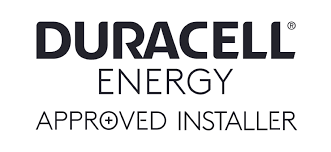How Do Solar Panels Work?
- Daniel Fifield
- Oct 30, 2023
- 3 min read
So, how do solar panels work, and how do they generate free electricity for homes and businesses? We will also look at a few solar PV benefits. Throughout this blog, we will explore all of these questions.

Did you know PV stands for 'photovoltaics'? This means converting light into electricity, which is exactly what solar PV does. Solar panels generate DC electricity from sunlight, which then goes into the inverter and eventually converts into AC electricity. The inverter is connected to your fuse board, so the electricity you generate can be used to power your home. When the sun shines onto the solar panel cells, an electric field occurs. However, solar panels do not need direct sunlight all the time, as they can work on cloudy days.
The inverter is essential within a solar system and is located in a garage or within a loft space. It converts DC into AC. A meter then determines how much your solar system produces. Any unused AC power is then returned to the grid or a battery backup. A battery backup or a spare battery is usually used to store the excess energy from your system, rather than allowing it to go straight to the grid.
Adding an extra battery will depend on your electricity usage. When the sun shines, you should use this energy through powering appliances, such as the washing machine or dishwasher because this effectively allows you to use your free energy.
Great Investment
Solar panels are one of the fastest-growing and most popular renewable energy sources in the UK. They are also an excellent investment for businesses and households; not only do you see paybacks within a few years, but you can also earn money on the side with the 'Smart Export Guarantee' if you live in England, Scotland and Wales. The scheme is there to help small-scale generators get paid for the renewable electricity they export to the grid. To comply with the scheme, you must have a meter which provides half-hourly export readings.
The Smart Export Guarantee tariff supplier doesn't necessarily need to be the same supplier who provided your renewable energy. Instead, it can be a different company. Your SEG supplier is required to offer you a tariff. However, it's up to them if they want to offer a tariff which is either fixed or variable.
The SEG allows companies to decide their own rates. However, it must be more than zero. For example, an energy company could pay you 24p for every kWh you produce from your solar PV to the grid.
Low Maintenance
Solar panels are low-maintenance, as you only need to replace the inverter between 20-25 years. At Neutral Energy, we will assist with aftercare and maintenance on solar panels, so whether you need advice or regular checks.
Creating Free Energy
Solar panels use energy from the sun, which is completely free. They are also environmentally friendly, as you are not using fossil fuels to power your home, and you are also reducing your carbon footprint.
At Neutral Energy Solutions, we will undertake a free energy consumption survey to understand your energy consumption, and provide insight on how you can reduce your costs and carbon footprint.
Solar PV can reduce your bill by nearly 100 per cent, depending on your property type. Solar panels fall under 'permitted development', which means you don't need a permit to install them, but you do if it's a heritage site or in a conservation area.
At Neutral Energy Solutions, we'll find the very best solution for your business and household.

.png)
.png)





Comments